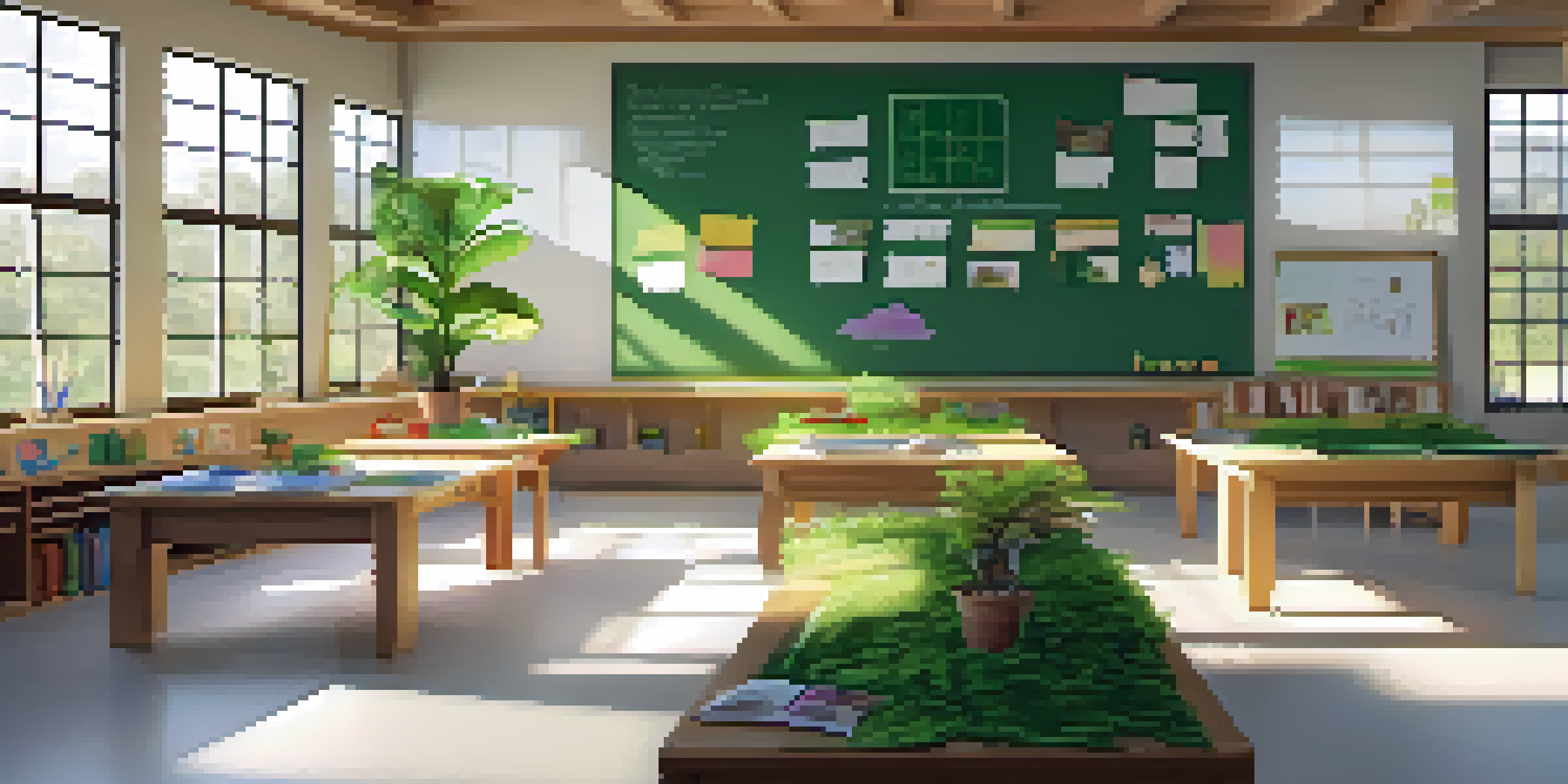Sustainable Practices for Teacher Professional Development

Understanding Sustainable Practices in Education
Sustainable practices in education refer to methods that not only enhance learning but also consider environmental, social, and economic impacts. By integrating sustainability into teacher professional development, we can create a more resilient education system. This approach encourages educators to think critically about their teaching methods and the resources they use, fostering a culture of continuous improvement.
The Importance of Continuous Learning for Educators
In a rapidly changing world, continuous learning is vital for educators. Embracing new teaching strategies and technologies keeps teachers engaged and effective in their roles. This commitment to lifelong learning also sets a powerful example for students, showing them the value of adaptability and growth.
Sustainable Education Practices Matter
Integrating sustainability into education enhances learning while considering environmental, social, and economic impacts.
Incorporating Technology for Sustainable Learning
Technology plays a crucial role in sustainable practices for teacher development. Online platforms and digital resources can reduce the need for physical materials and travel, making professional development more accessible. By utilizing webinars, e-courses, and virtual workshops, educators can engage in meaningful learning without the carbon footprint associated with traditional methods.
Building a Community of Practice Among Educators
Creating a community of practice allows educators to share resources and experiences, fostering collaboration and support. This network can help teachers develop sustainable practices by exchanging ideas and strategies that have been successful in their own classrooms. When educators come together, they not only enhance their own skills but also contribute to a larger movement toward sustainability in education.
Continuous Learning is Essential
Educators must embrace ongoing learning to adapt to new strategies and technologies, setting a positive example for students.
Promoting Eco-Friendly Teaching Materials and Resources
Using eco-friendly teaching materials is a key component of sustainable professional development. By selecting resources that are recyclable or made from sustainable materials, teachers can model environmentally responsible behavior. This not only reduces waste but also teaches students the importance of sustainability in their own lives.
Emphasizing Well-Being in Teacher Development Programs
The well-being of teachers is essential for effective professional development. Programs that prioritize mental health and work-life balance contribute to a more sustainable teaching environment. By addressing the holistic needs of educators, we create a culture that values self-care and resilience, which ultimately benefits both teachers and students.
Community Supports Teacher Development
Building a community of practice among educators fosters collaboration and resource sharing, strengthening sustainable teaching practices.
Evaluation and Feedback: Key to Sustainable Practices
Regular evaluation and feedback are crucial for assessing the effectiveness of sustainable practices in teacher development. By gathering input from educators, schools can identify areas for improvement and celebrate successes. This ongoing process helps to refine professional development efforts, ensuring that they remain relevant and impactful.
Future Trends in Sustainable Teacher Professional Development
Looking ahead, the trends in sustainable teacher professional development will likely focus on personalized learning experiences and innovative collaboration. As more tools and resources become available, educators can tailor their professional development to their specific needs and contexts. The future of teacher development is bright, with sustainability at its core, leading to a more engaged and environmentally-conscious teaching workforce.